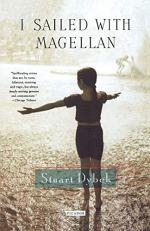
|
| Name: _________________________ | Period: ___________________ |
This test consists of 5 multiple choice questions, 5 short answer questions, and 10 short essay questions.
Multiple Choice Questions
1. What is the description of the condom springing from the narrator's fingers "like a spring from a clock" (235) meant to convey?
(a) The pressure of time passing.
(b) The comical setting of their first attempt at sex.
(c) The complex nature of growing up.
(d) The narrator's general clumsiness.
2. In the story's opening, what details are related to the passage of time?
(a) Light and darkness.
(b) Grass, leaves, and snow.
(c) The condition of the Rambler and the rosary.
(d) Gin's bed and their parents' cars.
3. How has the narrator and Gin's relationship changed by the end of the summer?
(a) Gin cries whenever the narrator tries to kiss her.
(b) The narrator has begun to notice other girls in his neighborhood.
(c) They argue constantly about trivial things.
(d) Gin is not comfortable being alone with the narrator.
4. From the context of page 234, what "apocalypse" is the allusion to the Four Horsemen referring to?
(a) Global pandemic.
(b) Water scarcity.
(c) Nuclear annihilation.
(d) Climate change.
5. Who is the author of "We Didn't"?
(a) Yehuda Amichai.
(b) Perry Katzek.
(c) Stuart Dybek.
(d) Vincent Kowalski.
Short Answer Questions
1. What is the rhetorical purpose of the anaphora in the narrator's description of the Gold Coast residents having sex?
2. Which of the following is one of the places where the narrator and Gin go to try to resume their attempts at intimacy after the incident at the beach?
3. In Gin's dream about the beach, why has the narrator left her alone?
4. To what does the narrator compare Gin's mother's rosary?
5. What does Gin tell the narrator she is afraid of when they are lying on the beach together?
Short Essay Questions
1. What does Gin dream about a baby in the water, and what does she believe her dream means?
2. What point about the relationship between men and women is made by the details the narrator observes on his train ride home after the night at Oak Street Beach?
3. What do the first paragraph's details about the father's car convey about the family's social class?
4. What messages about gender, sex, and adulthood are being conveyed in the phrase "entered you as if passing through a gateway into the rest of my life," which the narrator uses to describe his beliefs about what is happening on the beach that night?
5. How is the From Here to Eternity love scene evoked ironically when the narrator and Gin are on the beach?
6. What is the rhetorical effect of the diction used in the following description of the setting at Oak Street Beach: "The lake had turned hot pink, rose rapture, pearl amethyst with dusk, then washed in night black with a ruff of silver foam. Beyond a momentary horizon, silent bolts of heat lightning throbbed" (234)?
7. What plot events--one immediate and one later--are foreshadowed by the narrator's description of "the bodies of lovers...visible in lightning flashes, scattered like the fallen on a battlefield" (234)?
8. What does the narrator say might have happened if the dead woman had washed up beside them while he and Gin were trying to have sex on the beach, and why is Gin so offended?
9. In what sense does the narrator mean that, after the night on Oak Street Beach, the dead woman was always "with" him and Gin?
10. What is foreshadowed by the page 233 description of their "lover's lane"?
|
This section contains 1,275 words (approx. 5 pages at 300 words per page) |

|




